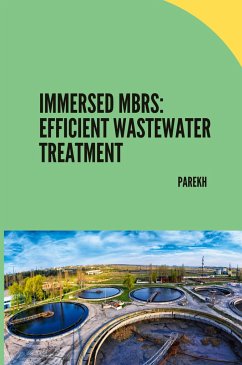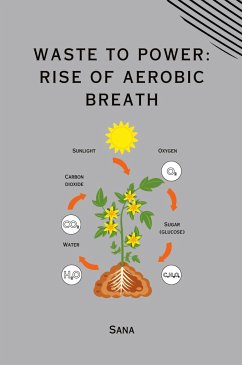
Enhancing Wastewater Analysis: A Data-Driven Approach with Machine Learning
Versandkostenfrei!
Versandfertig in 6-10 Tagen
26,59 €
inkl. MwSt.

PAYBACK Punkte
0 °P sammeln!
Wastewater analysis, traditionally a meticulous but limited science, is undergoing a revolution. Machine learning (ML) is emerging as a powerful tool, transforming how we analyze wastewater and optimize treatment processes.The challenge? Wastewater is a complex and ever-changing cocktail. Influent characteristics - the mix of incoming wastewater - can vary significantly, making traditional analysis methods struggle to keep up. ML, however, thrives on complexity.These algorithms can analyze vast datasets, uncovering hidden patterns and relationships within the seemingly random data. Imagine a s...
Wastewater analysis, traditionally a meticulous but limited science, is undergoing a revolution. Machine learning (ML) is emerging as a powerful tool, transforming how we analyze wastewater and optimize treatment processes.The challenge? Wastewater is a complex and ever-changing cocktail. Influent characteristics - the mix of incoming wastewater - can vary significantly, making traditional analysis methods struggle to keep up. ML, however, thrives on complexity.These algorithms can analyze vast datasets, uncovering hidden patterns and relationships within the seemingly random data. Imagine a scientist sifting through mountains of data to find a single clue - ML automates this process with remarkable efficiency.This newfound power translates into several benefits. ML models can predict changes in influent composition, allowing for proactive adjustments to treatment processes. This ensures efficient treatment and minimizes the risk of exceeding pollutant discharge limits.Furthermore, ML excels at early fault detection. By analyzing sensor data, it can identify subtle anomalies that might indicate equipment problems. Catching these issues early allows for preventive maintenance, reducing downtime and costly repairs.In essence, ML empowers a data-driven approach to wastewater analysis. By unlocking the hidden insights within wastewater data, we can create smarter, more efficient, and ultimately, more sustainable wastewater treatment practices, safeguarding our water resources for the future.














